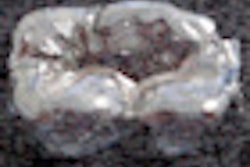
For companies of all sizes, when an employee takes time off to go to the dentist, productivity is lost. In Denmark, an innovative firm with roots in Silicon Valley is maximizing efficiency while ensuring that workers get the dental care they need -- care they may not have received at all if it weren't for Onsite Dental's services.
"This is new and innovative," Joshua Perry, founder of Onsite Dental, explained during a Skype interview with DrBicuspid.com from the company's headquarters in Frederiksberg. "We're not recreating dentistry, just the mobile aspect of it."
That means bringing the dentist directly into workplace at companies all over Denmark.
"We cross-utilize musculoskeletal clinics that are quite common in the workplace here in Denmark doing physiotherapy, massage therapy, and chiropractic," Perry explained. "So we'll transform a dedicated room in the workplace into a dental clinic on days it isn't currently being used and provide a focus of preventive dental care to the employees. We also do minor restorations and cosmetics and so forth. A lot of that is meant to go back to the patient's existing dentist's relationship, or we can find them a local dentist they can go to if they don't have one."
“We'll transform a dedicated room in the workplace into a dental clinic.”
Perry gained valuable knowledge about how the Danish healthcare system functions while working on his Master of Business Administration degree at Copenhagen Business School. In dentistry, there are parallels to the U.S. model, but one major difference is that group dental insurance is not readily available in the Danish marketplace.
"Denmark is known as the most expensive country in Europe for dentistry," Perry noted.
Another significant factor preventing Danes from seeing the dentist regularly lies in the way dental benefits are provided by their socialized healthcare system.
"In Denmark and many of the Nordic countries, in elementary through high school, people receive annual cleanings and other services; then, once they're 18, it's a privatized experience," Perry said. "They're at least getting the preventive done as a kid. General health is largely paid for by the socialized healthcare system, but dental drops off [after 18]."
Based on the work he did for his master's degree, Perry estimated that as much as 25% of the Danish population ages 18 to 64 were not making annual trips to see the dentist.
"They start off well and then 25% drop off until they're 64," Perry said. "So that's what causes expensive dental treatments, by not continuing care."
In addition, that age group represents the working population, he noted.
Parallel trends
Denmark experienced a cultural shift to workplaces offering health services in the mid-1990s, Perry explained.
"A chiropractor had been approached by a human resources consulting firm that had Lego as a client," he said. "Lego is situated in a rural area [Jutland] not close to Copenhagen and was looking at that time for services that could be used to attract and retain valuable employees. That started the trend."
Now many companies have dedicated treatment rooms, he noted.
Around the same time, Perry started working with Onsite Health in California. The company sought to take advantage of the booming Silicon Valley economy by bringing dental care directly to the other companies sprouting up all over the region. Onsite grew in parallel to the developing trend of onsite care in Denmark.
Once he understood the Danish healthcare landscape, Perry's organization, Onsite Service, partnered with Falck Healthcare, a Danish healthcare heavyweight, to create Onsite Dental.
"Falck Healthcare is part of Falck Group; they're one of Denmark's largest employers and have been around for about 100 years, providing ambulatory roadside assistance," Perry explained. "The partnership generated a lot of national news, that they're moving into the dental arena to assist Danish dentists already in practice."
In a country with only 6,000 dentists, awareness of his company came easily.
"It's a small community and word spreads pretty quickly through word of mouth," Perry explained. "So it hasn't been difficult to pique their interest and see if there's an opportunity to assist them."
Dentists can sign up for the service online, listing their specialties and availability. Perry's company provides the back office support.
"Dentists enjoy working with patients and doing dentistry. We do the things they prefer not to do," Perry said.
It also helps dentists diversify their business in major metropolitan areas where there are many practicing dentists and competition for patients is high.
"In this way, certainly in Copenhagen, they look at it as a way to extend their practice and offer their high-quality dentistry right where the patients are located, at their workplace," Perry explained.



















